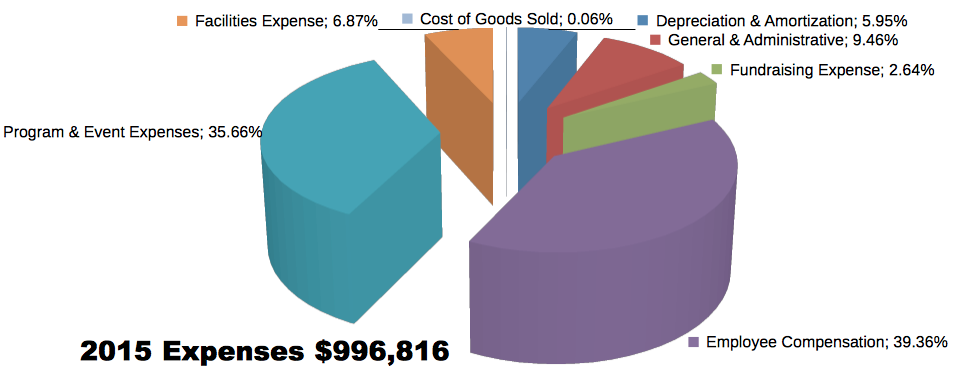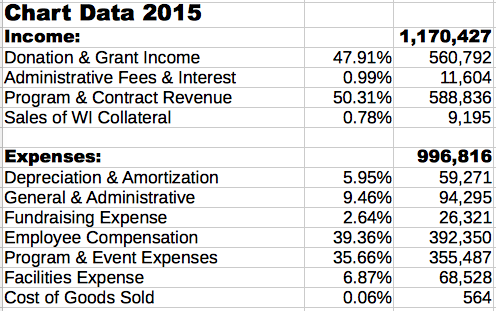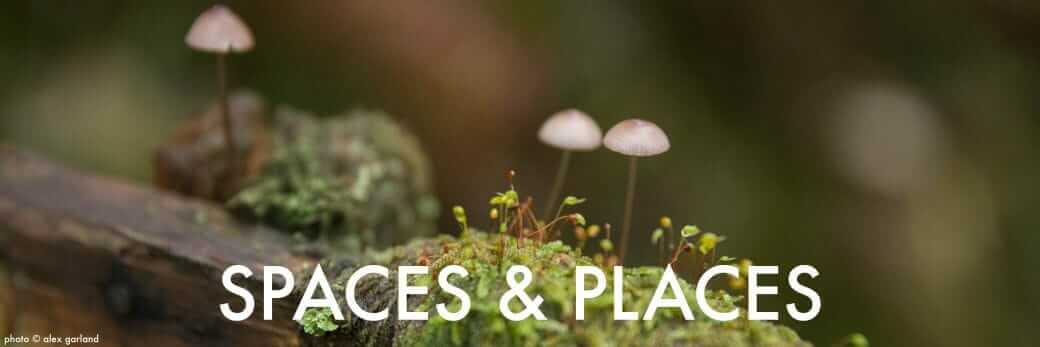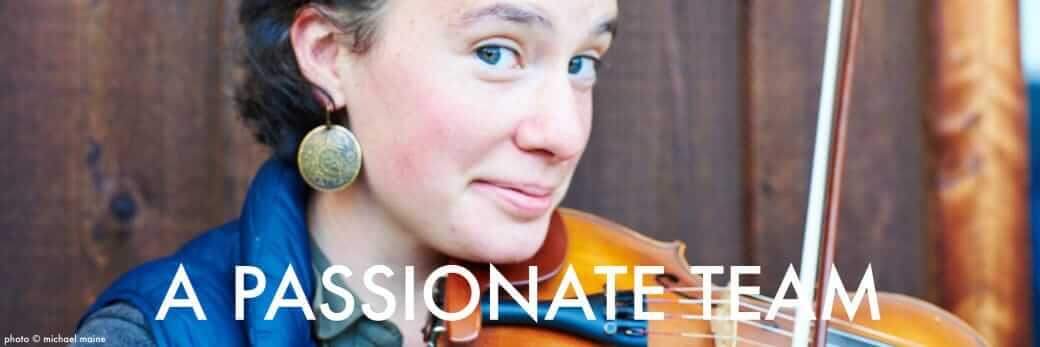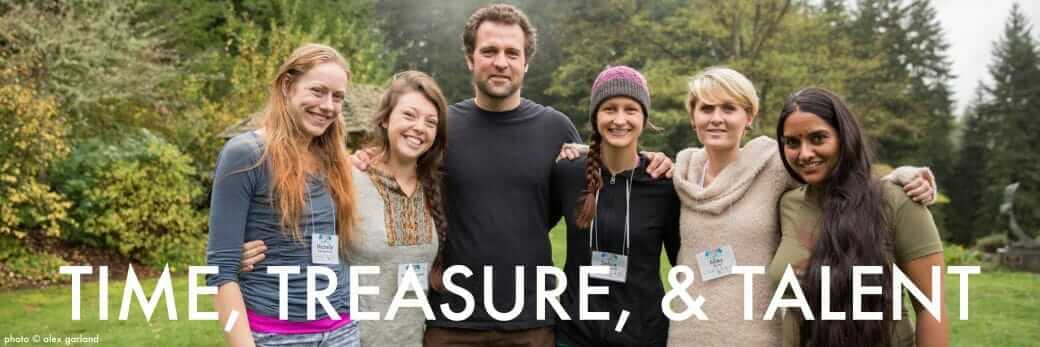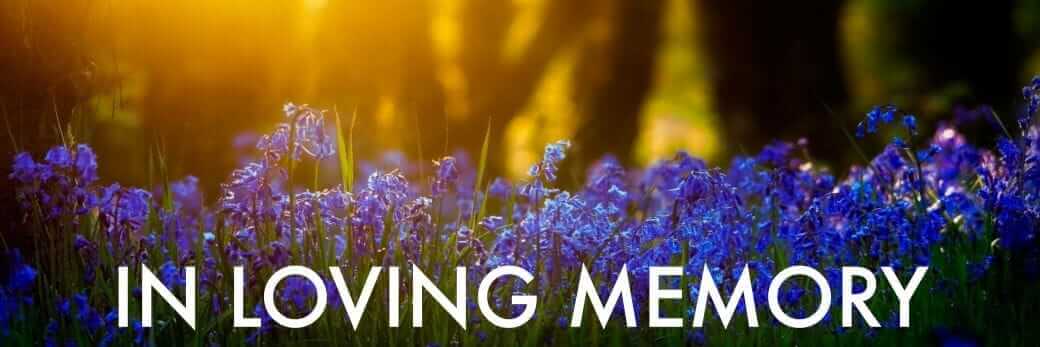Table of Contents
The Pulse of the Institute | Programs & Partnerships | Spaces & Places | A Passionate Team
Time, Treasure, & Talent | In Loving Memory
A LETTER FROM EXECUTIVE DIRECTOR HEATHER JOHNSON
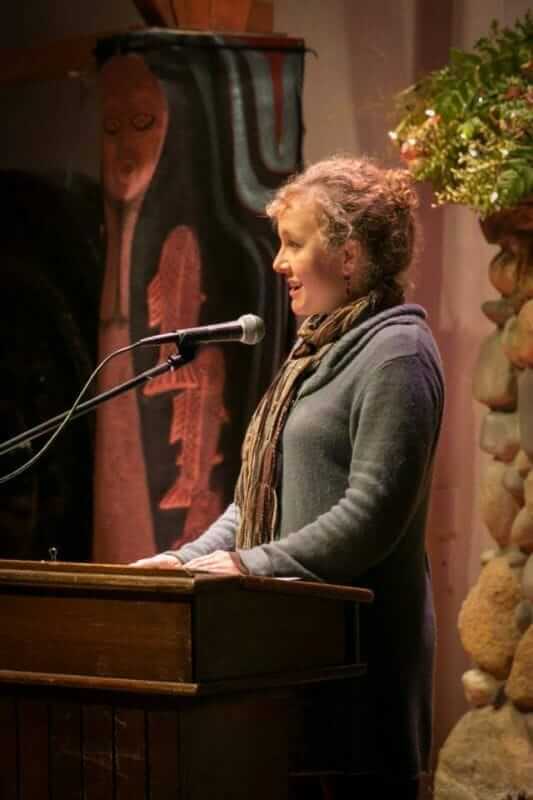 Dear friends,
Dear friends,
At the Whidbey Institute, our journey is a microcosm of the larger human experience. As the global human story evolves, so does ours here.
I see an unmistakable thread weaving what has come before, in this place, with what is emerging now. Throughout our history and today, the purpose of our work has been to mature ourselves, as human beings in community, toward lives lived in balance with life itself.
This simple goal comes with perplexing challenges. As a global community, we carry the gifts and curses of cultural inheritances, the limit of established mindsets, and the structures and systems constructed in the context of both. We are experiencing a storm of urgent social and environmental consequences growing in force.
Motivation to shift how we’re collectively living is rising, as are sensations of fear, blame, and longing. Longing to find the right answer, longing for leaders to follow, and longing for solutions in the right ideologies to which others can be converted. Such responses are understandable, and yet they take us away from the deeper work that lies within ourselves.
We come together at the Whidbey Institute because we need each other. We have learning, growing, mending, and healing to do. We are in an age that requires reinterpreting, remembering, and discovering who we are and who we need to be. The work of maturing ourselves, our structures, and the cultures into which we invite new generations is urgent and ongoing.
This is big work, and it requires all of us. This is not the work of a particular profession, or a particular movement of activism. We all have a role to play. Beyond the work of this season or decade, this is the work of our lifetimes.
I am profoundly grateful we have each found our way here to share this important journey. Please look at the names which surround this letter, and recognize that you are not alone—you share a purpose with each of these precious human beings.
Thank you for your role in the work of the Whidbey Institute, and for coming together in service to life
on Earth.
With gratitude,
Heather Johnson
Executive Director, the Whidbey Institute
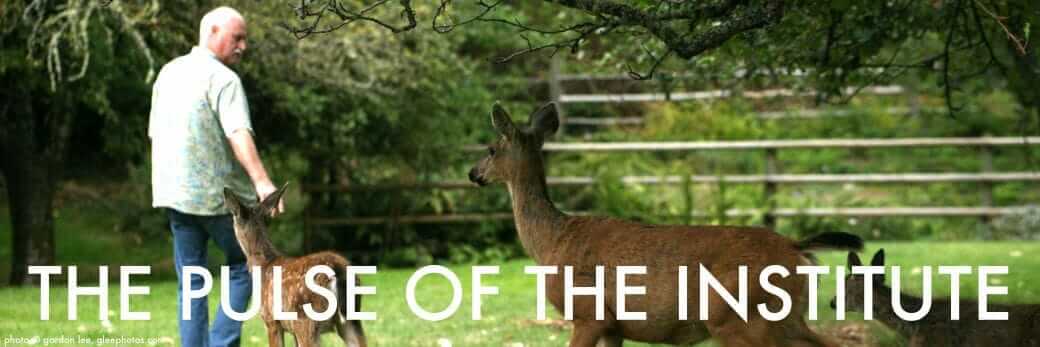
“The essence of community, its heart and soul, is the non-monetary exchange of value; things we do and share because we care for others, and for the good of the place.” —Dee Hock
2015 was a year of growth and change at the Whidbey Institute. It is our pleasure to share stories that embody this great progress, made possible through your care, commitment, energy, and vision.
Chinook Campus Grows by 30 Acres through Founders’ Land Sale
 On November 9, the Whidbey Institute purchased 30 acres from Chinook founders Fritz and Vivienne Hull, bringing the total size of our Island campus to just over 100 acres.
On November 9, the Whidbey Institute purchased 30 acres from Chinook founders Fritz and Vivienne Hull, bringing the total size of our Island campus to just over 100 acres.
“We are at a critical moment in our cultural and ecological history,” said Whidbey Institute Executive Director Heather Johnson. “A unified, 100-acre Chinook campus, with the support of our founders and broader community, strengthens our ability to serve a generation of rising leaders.”
We are incredibly grateful to the participants, donors, partners, and community members who have made this acquisition, and the future which it represents, possible.
Gratitude Gala and Chinook Community Festival
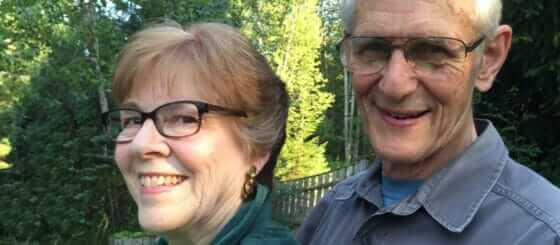 In October, we celebrated two senior fellows of the Whidbey Institute—Sharon Daloz Parks and Larry Parks Daloz—during our second annual Gratitude Gala.
In October, we celebrated two senior fellows of the Whidbey Institute—Sharon Daloz Parks and Larry Parks Daloz—during our second annual Gratitude Gala.
At the Gala, our community came together to honor Larry and Sharon’s lifetime contributions to this organization and to help fund the ongoing work about which we all care so much. The next morning, we continued the festivities with a day of stories, songs, and celebration on the Chinook land plus a raffle fundraiser.
In total, you helped us raise $155,000 for the stewardship of our place and mission during the weekend!
We thank our Gala and Festival team, including but not limited to Kate Snider, Hilary Wilson, Sheryl Harmer, Cathy Buller, Mira Steinbrecher, Cole Hoover, Marnie Jackson-Jones, Thomas Anderson, Dan Mahle, Peter Martin, Robert Mellinger, Chris Clark, Ellen Carleson, Rae Carleson, Jill Sheldon, Riley Snider, Marybeth Dickerson, Gabriel Shirley, Michael B. Maine, and Christyn Johnson, as well as our wonderful and hard-working servers, site prep crew, and kitchen staff.
Thanking Our Catalyst Circle
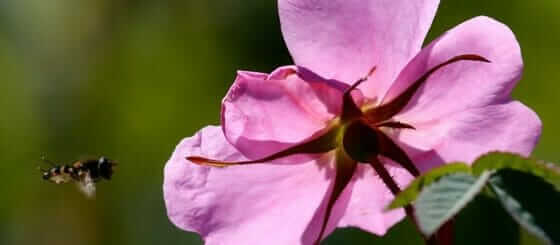 The dedication and guidance of our Catalyst Circle members are essential to this organization and its mission. Their wisdom and support lie at the heart of our work. We thank these generous donors of time, money, and insight for infusing all that we do with their vibrant passion for both our proud history and our exciting future.
The dedication and guidance of our Catalyst Circle members are essential to this organization and its mission. Their wisdom and support lie at the heart of our work. We thank these generous donors of time, money, and insight for infusing all that we do with their vibrant passion for both our proud history and our exciting future.
On behalf of all of us here at the Whidbey Institute, we thank our Catalyst Circle wholeheartedly for helping us not only serve, but thrive.
Thanking the M. J. Murdock Charitable Trust
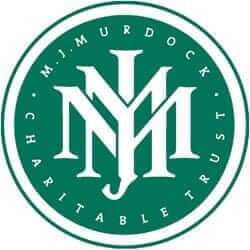 We were honored in November with a capacity-building grant from the M.J. Murdock Charitable Trust to establish a robust development office. This award provided the opportunity to grow our team, including hiring a full-time Development Manager to help steward our next stage of growth and organizational maturity.
We were honored in November with a capacity-building grant from the M.J. Murdock Charitable Trust to establish a robust development office. This award provided the opportunity to grow our team, including hiring a full-time Development Manager to help steward our next stage of growth and organizational maturity.
In this season in our evolution the Murdock Trust award is particularly meaningful. The award helps us align resources with our needs and mission as we sustain our 100+ acre campus, grow into a new phase of youth-focused work at Storyhouse and Legacy Forest, expand our facilities and lodging to enable long-term financial sustainability and lower physical and financial barriers to participation, steward a networked community of program leaders, increase our reach and impact, and take concrete steps to advance our commitment to equity and inclusion.
We are deeply grateful to the M.J. Murdock Charitable Trust for investing in our potential.
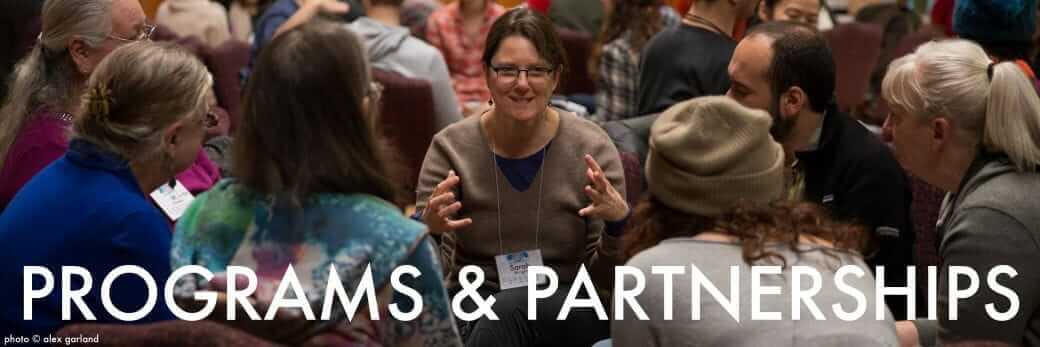
“Infinitely more important than sharing one’s material wealth is sharing the wealth of ourselves—our time and energy, our passion and commitment, and, above all, our love. —William E. Simon
We are proud to have hosted a full calendar of mission-aligned work at the Whidbey Institute throughout 2015. Here are just a few highlights from the many inspiring programs we hosted, partnered with, and welcomed into our spaces last year.
Salish Sea Bioneers Conference
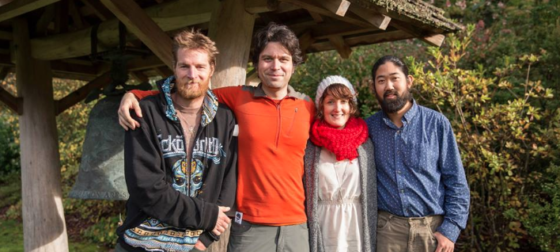 In November, the Whidbey Institute hosted its 6th annual Salish Sea Bioneers conference with over 100 participants. The three day gathering focused on Sharing our Stories and featured keynote speakers Zarna Joshi and Sundance Chief Rueben George. Photos available online.
In November, the Whidbey Institute hosted its 6th annual Salish Sea Bioneers conference with over 100 participants. The three day gathering focused on Sharing our Stories and featured keynote speakers Zarna Joshi and Sundance Chief Rueben George. Photos available online.
“The last couple days have been heartbreakingly beautiful,” said 2015 conference participant Sossina Chirhart. “I have met people that have changed my life forever, that even now in this moment are changing the universe as I know it forever.”
Staff member Dan Mahle coordinated an all-volunteer team to design, host, and facilitate the gathering. We have so much gratitude for the design team members and all who made this event happen!
Salish Sea Bioneers Learning Community
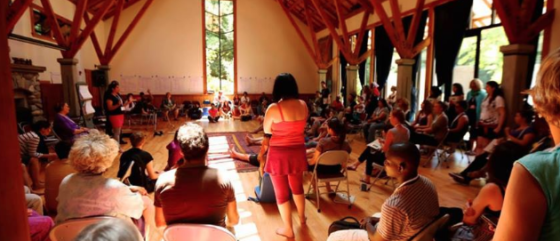
Throughout 2015, Dan Mahle coordinated and facilitated a Salish Sea Bioneers Learning Community in Seattle which engaged over 100 people through 12 events, workshops, and gatherings in the city. Topics included Nonviolent Communication, Restorative Justice, Distributed Solar Power, Reinventing Organizations, and Community Rights Organizing, among others.
We are grateful for all of our guest presenters and everyone who joined us at events in Seattle last year!
Women of Color Speak Out

A new Cascadia Climate Collaborative project, “Women of Color Speak Out,” launched with a panel discussion at Town Hall in Seattle last August. Panelists Sarra Tekola, Zarna Joshi, Afrin Sopariwala, and Yin Yu discussed the vital role of women of color in the environmental rights movement in a far-ranging conversation which touched on climate change as an extension of colonialism; big industry’s “divide and conquer” strategies; diversionary tactics and the “plastic kayak” objection; emotional resilience and ethical responsiveness in the face of grueling scientific evidence; the role of diet in greenhouse gas emissions; the difference between tokenization and solidarity; karma and the human capacity for compassion; the power of a maternal, human response; and the importance of speaking from the heart about what we love and are in danger of losing. Watch a video of the program here.
Our Shared Future—Global Climate Change
by Ann Linnea for Whidbey Life Magazine
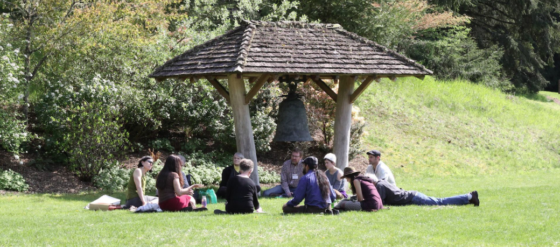
Right in the middle of April—earth and ocean month—the Whidbey Institute hosted a two-day conference on global climate change that attracted activists, artists, students, business leaders and educators from throughout the Cascadia bioregion. Since the event was billed as an “intergenerational dialogue,” conference organizers went out of their way to ensure a diversity of ages. Students and representatives from nonprofit organizations were well represented.
Read the full article in Whidbey Life Magazine, then see photos from our conference here.
Laying Down the Welcome Mat
by Dianna MacLeod for Whidbey Life Magazine
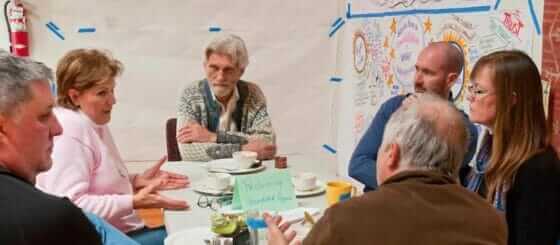
“What is home to you?” That was the question asked of the 85 people gathered at the Whidbey Institute for a three-day conference on Shelter in March.
If there’s a more soulful place to ask this most fundamental of questions than the Thomas Berry Hall at the Institute, it’s hard to imagine it. The hall, with its soaring roof, skylight to the heavens, stone hearth and artfully designed windows that draw the eye into the forest beyond, seems designed to both engender feelings of home and prompt ideas about connection and community.
Read the full article on our March Thriving Communities Conference here, at Whidbey Life Magazine.
Watch the Lens on Shelter Highlights Reel.
Bet Alef Meditative Synagogue Retreat
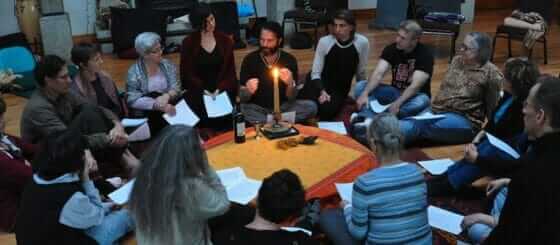 Bet Alef Meditative Synagogue held their second annual meditation retreat at Chinook in 2015. We recently had the opportunity to speak with Rabbi Olivier BenHaim about the retreat, his path and work, and the vision and purpose of Bet Alef’s spiritual community, which fosters “a Jewish spirituality for all ages that supports each individual, is realized in community, and manifests itself in our world as peaceful acts of greater compassion and love.”
Bet Alef Meditative Synagogue held their second annual meditation retreat at Chinook in 2015. We recently had the opportunity to speak with Rabbi Olivier BenHaim about the retreat, his path and work, and the vision and purpose of Bet Alef’s spiritual community, which fosters “a Jewish spirituality for all ages that supports each individual, is realized in community, and manifests itself in our world as peaceful acts of greater compassion and love.”
“Spirituality, at its essence, should manifest in healing of planet and healing of community,” Rabbi Olivier said. “Spirituality that is devoid of work—that is, spirituality that doesn’t translate in the world to work of healing, isn’t worth embracing.” In this way, he explained, the Whidbey Institute is deeply aligned as a home for Bet Alef’s retreats. “It is no mistake that we would find ourselves at the Whidbey Institute, because to me the Institute is, in many ways, spirituality in action. Spirituality, at its essence, should manifest in healing of planet and healing of community—and that is what the Whidbey Institute offers.”
Bellevue College Leadership Retreat Series
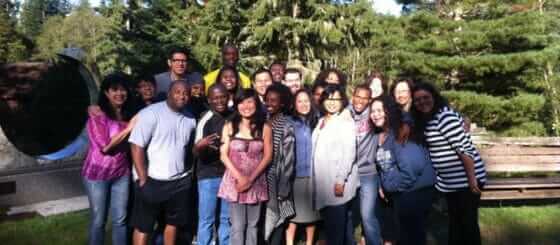 Whidbey Institute partner and Powers of Leadership graduate Sayumi Irey worked with colleagues and administrators to launch Bellevue College’s leadership retreat series to support minority leaders in higher education. The team advocating for the program grew to include Bellevue College president David Rule and co-facilitators Ata Karim and Yoshiko Harden. In summer 2015, their first cohort completed the retreat cycle after three visits to the Whidbey Institute.
Whidbey Institute partner and Powers of Leadership graduate Sayumi Irey worked with colleagues and administrators to launch Bellevue College’s leadership retreat series to support minority leaders in higher education. The team advocating for the program grew to include Bellevue College president David Rule and co-facilitators Ata Karim and Yoshiko Harden. In summer 2015, their first cohort completed the retreat cycle after three visits to the Whidbey Institute.
“Six or seven schools were originally going to participate,” Irey said, “but by word-of-mouth, the idea spread.” When applications were opened to the 34 community colleges in Washington State, over 30 applicants expressed interest. Irey’s team quickly filled the 20 openings, in what she called, “an instantaneous, overwhelming success.” Irey said that the first cohort included faculty and employees of color from community colleges all over the state.
Irey spoke of the sense of safety and community that the group experienced during their time together at Chinook. “When I’m working, I have to wear several masks. Higher education is very white and male-centered.” Here, the masks came off and participants got to connect in a way that was, for many, new. “For some, this was the first time their voices were really heard,” Irey said. “It was life-changing and transformative work.”
“What made me think Whidbey was the best place for the retreat was a conversation with Heather,” Irey said. “How she responded to me was so personal, rather than businesslike, that I knew I could have a long-term relationship with the Whidbey Institute.”
Personal Leadership Seminars
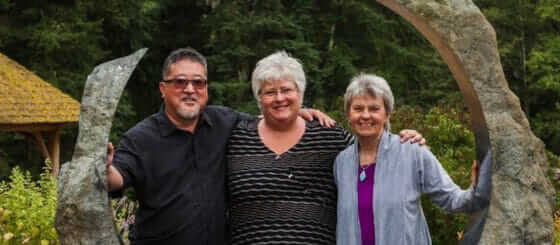 Gordon Watanabe teaches practitioners and facilitators of Personal Leadership (PL) in Oregon and Washington and elsewhere around the globe. With PLSeminars co-founders Sheila Ramsey and Barbara Schaetti, he also leads a worldwide community of senior and associate facilitators who teach PL in widely diverse contexts and cultures. Partnering with Gordon and Barbara to hold their PLSeminars work at the Whidbey Institute has been a great pleasure, and an opportunity to better know their work and stories.
Gordon Watanabe teaches practitioners and facilitators of Personal Leadership (PL) in Oregon and Washington and elsewhere around the globe. With PLSeminars co-founders Sheila Ramsey and Barbara Schaetti, he also leads a worldwide community of senior and associate facilitators who teach PL in widely diverse contexts and cultures. Partnering with Gordon and Barbara to hold their PLSeminars work at the Whidbey Institute has been a great pleasure, and an opportunity to better know their work and stories.
The PL process covers six practices which are at the heart of communicating across difference, and which invoke a fundamental necessity to look inward: to self-reflect, in order to shift from conflict toward understanding. “An individual is responsible for their own responses,” Gordon said, “and those responses may be personality driven, culturally driven, or family driven. Therein lies the opportunity for the person to learn more about oneself.”
Gordon invites students of intercultural communication to stop and ask, “why is it I’m reacting the way I’m reacting? What is going on, and how can I find out more about myself?” At that point, he explains, one can mine the experience of conflict for a greater understanding of one’s own belief systems and their origins—thereby shifting the entire conversation toward a place that is generative, respectful, and welcoming of diverse perspectives.
“If we are looking for insurance against want and oppression, we will find it only in our neighbors’ prosperity and goodwill and, beyond that, in the good health of our worldly places, our homelands. If we were sincerely looking for a place of safety, for real security and success, then we would begin to turn to our communities – and not the communities simply of our human neighbors but also of the water, earth, and air, the plants and animals, all the creatures with whom our local life is shared.” —Wendell Berry
Our Chinook land and the structures that provide a home for our work are central to the purpose and identity of the Whidbey Institute, and caring for these spaces is at the heart of what we do. We are grateful to the dedicated team of staff and community members who help tend the beauty around us.
Starting at Home: Whidbey ECONet Spotlight
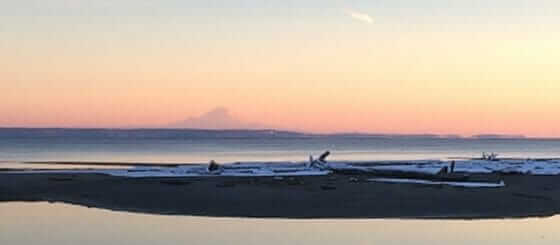 “This much is clear to me. If I can’t change my own life in response to the greatest challenge now facing our human family, who can? And if I won’t make the effort to try, why should anyone else? So I’ve decided to start at home, and begin with myself. The question is no longer whether I must respond. The question is whether I can turn my response into an adventure.” —Kurt Hoelting, The Circumference of Home
“This much is clear to me. If I can’t change my own life in response to the greatest challenge now facing our human family, who can? And if I won’t make the effort to try, why should anyone else? So I’ve decided to start at home, and begin with myself. The question is no longer whether I must respond. The question is whether I can turn my response into an adventure.” —Kurt Hoelting, The Circumference of Home
When our neighbor Kurt Hoelting pulled out a map and drew a circle around this place, he found that a radius of 100 kilometers just took in the peaks of the wild Olympics and the snowy Cascades, brushed the southern end of the Puget Sound, and encompassed the San Juan Islands and the outlet of the Salish Sea to the north. Chinook, adjacent to Hoelting’s acreage, sits in the center of this 100-kilometer circle—the heart of Cascadia and the center of the Salish Sea. Read the full article on the Econet website.
Whidbey Earth and Ocean Month Combines Ecology, Community
by Kate Daniel, South Whidbey Record staff writer
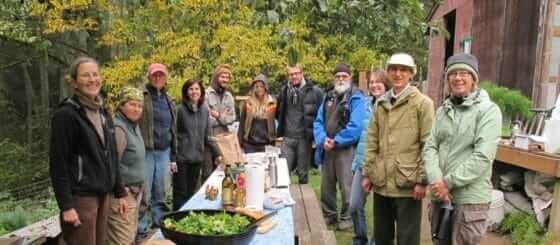 Though Earth Day lasts only 24 hours, a number of South End residents are working year-round to conserve the island’s numerous natural treasures.
Though Earth Day lasts only 24 hours, a number of South End residents are working year-round to conserve the island’s numerous natural treasures.
Many of these individuals are volunteers who assist in community gardens such as those at the South Whidbey School District and Good Cheer, or join in work parties removing Scotch broom and yellow archangel from public areas like South Whidbey State Park or the Saratoga Woods.
Others work with organizations such as the Whidbey Institute, fostering discussion of environmentally conscious practices within the context of building a cooperative and healthful community. Read the full article here on the South Whidbey Record website.
Thanking Hand in Hand Partnership
 We are pleased to announce that for the second year in a row Hand in Hand Partners contributed a $10,000 matching grant to the Community Gardening Leadership Training program! Thank you, Hand in Hand, for your work to help us nurture and inspire the food leaders of tomorrow. Thanks to this funding and many additional donations from our community members, apprentices are able to immerse themselves in the process of growing food from seed to harvest and learn what it takes to build a strong and equitable community food system.
We are pleased to announce that for the second year in a row Hand in Hand Partners contributed a $10,000 matching grant to the Community Gardening Leadership Training program! Thank you, Hand in Hand, for your work to help us nurture and inspire the food leaders of tomorrow. Thanks to this funding and many additional donations from our community members, apprentices are able to immerse themselves in the process of growing food from seed to harvest and learn what it takes to build a strong and equitable community food system.
Our program is helping to fuel a strong societal movement that is centered around a simple but profound belief: knowing how to grow good food is vital for our health, our communities, and our environment.
Foodbank Donations
 Our Westgarden staff and volunteers donated 662 pounds of produce to Good Cheer in 2016. Most was kale, chard, and lettuce, all of which seem to fly off the shelves at the food bank!
Our Westgarden staff and volunteers donated 662 pounds of produce to Good Cheer in 2016. Most was kale, chard, and lettuce, all of which seem to fly off the shelves at the food bank!
Garden Manager Abigail Lazarowski shared a sweet memory from around the peak of harvest season: “Margaret and I would cram into my station wagon with our bodies, her big bike, and crates full of summer squash, tomatoes, and greens, and bumble over to the food bank. It was always a funny game trying to fit everyone and everything in my car when the harvests were so large.”
Thanking Mara Grey
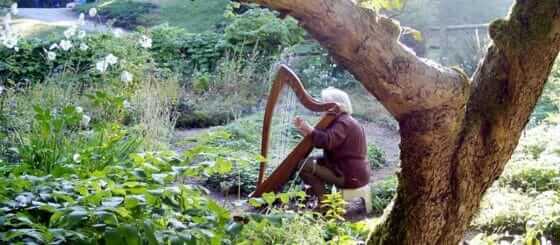 Mara Grey—botanist, Celtic harpist, storyteller, master gardener, and author of The Lazy Gardener and The Complete Idiot’s Guide to Flower Gardening—volunteers as caretaker for the Appletree Garden at Chinook.
Mara Grey—botanist, Celtic harpist, storyteller, master gardener, and author of The Lazy Gardener and The Complete Idiot’s Guide to Flower Gardening—volunteers as caretaker for the Appletree Garden at Chinook.
When we spoke with Mara in the shade of the old apple tree, our conversation ranged from Chinook history and garden stewardship to ancient languages and the power of story.
Mara’s care of the garden is rooted in more than just a love of earth and growing things. Read more about Mara on our blog.
Our August BioBlitz
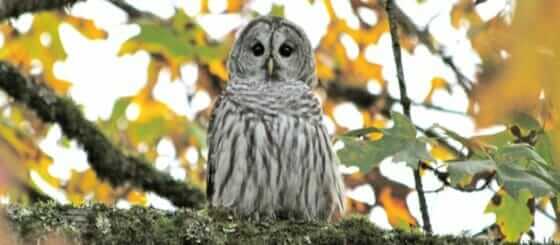 On Saturday, August 2, eighteen people gathered at Chinook to get to know the many beings who help make this place our home. A BioBlitz is a process of documenting biodiversity at a specific location for a set period of time. It can take many forms. Ours was simple, with a “get acquainted” theme. We went out to explore the forest, wetlands, hills, and cultivated areas of Chinook, and together we got to know the biodiversity of this place.
On Saturday, August 2, eighteen people gathered at Chinook to get to know the many beings who help make this place our home. A BioBlitz is a process of documenting biodiversity at a specific location for a set period of time. It can take many forms. Ours was simple, with a “get acquainted” theme. We went out to explore the forest, wetlands, hills, and cultivated areas of Chinook, and together we got to know the biodiversity of this place.
Participants ranged from ten years old to 70+, from lifelong scientists and naturalists to new explorers of the world beyond the human. Using iNaturalist, an online platform and mobile application, we submitted our observations and photographs to a global community of amateur and expert naturalists. This peer-community helps users identify and make sense of their observations, and can sometimes use the observations for research. Most importantly, we all had the chance to appreciate and respect our home by getting to know it better.
Thank you to all who came and participated to make this a successful and meaningful event! We especially thank our partner organizations, SEA and Whidbey ECONetwork, for outreach support and connecting with teachers.
Granny’s Upgrades
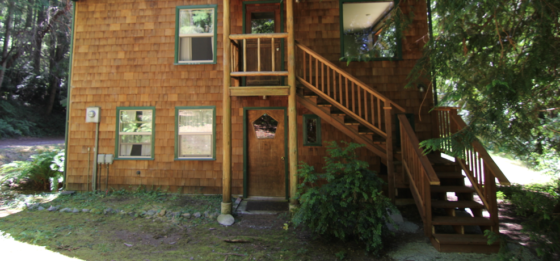 Granny’s, our woodland home, received some much-needed TLC in the spring: all new Milgard windows, and a beautiful, safe new rear staircase and porch.
Granny’s, our woodland home, received some much-needed TLC in the spring: all new Milgard windows, and a beautiful, safe new rear staircase and porch.
In addition to providing greater energy efficiency and aesthetic improvements, the new, screened windows will improve guest comfort—providing winter warmth and summer breezes.
Caring for Chinook
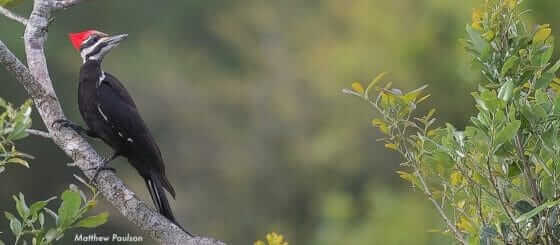 In other facilities news, Beno Kennedy worked throughout the summer to repair the greenhouse roof and install passive venting to augment the thermostatic fan, while Robert Mellinger established a permanent soaking system for the courtyard gardens.
In other facilities news, Beno Kennedy worked throughout the summer to repair the greenhouse roof and install passive venting to augment the thermostatic fan, while Robert Mellinger established a permanent soaking system for the courtyard gardens.
We began several land-based projects last year including a major renovation of the whole trail system and ecological restoration of the area surrounding TBH’s parking lot and behind the Apple Tree Garden. These projects continue into 2016.
Relocating Our Staff Cabin
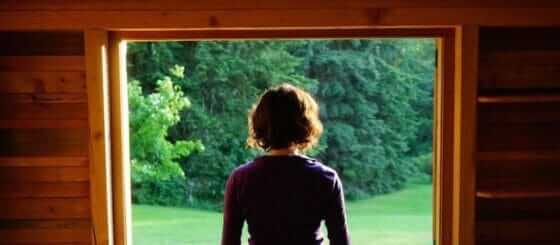 The wooden cabin which sat at the north end of our upper parking lot, and which was Jerry Millhon’s office during his tenure as Executive Director, has been relocated to the center of our heartland. It has quickly become an inspiring place for staff meetings, conversations, and focused work. The cabin relocation team included builder Kim Hoelting and staff members Thomas and Beno.
The wooden cabin which sat at the north end of our upper parking lot, and which was Jerry Millhon’s office during his tenure as Executive Director, has been relocated to the center of our heartland. It has quickly become an inspiring place for staff meetings, conversations, and focused work. The cabin relocation team included builder Kim Hoelting and staff members Thomas and Beno.
The floors have been beautifully refinished, a complement to the new, lovely Westgarden view out the cabin’s back window.
Roof Work on Farmhouse, Sanctuary
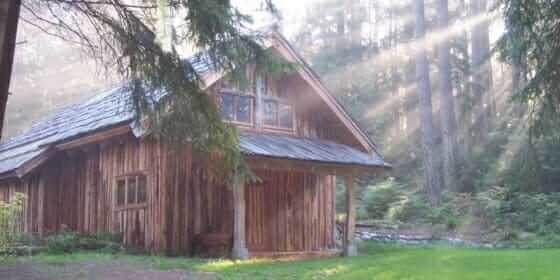 Beno Kennedy put in long hours throughout the month of July to clean and repair the Sanctuary roof. Beno was involved from the very beginning with these unique shingles, which he personally helped split onsite a decade and a half ago. On the first course as well as on the porch roof, each shingle is 10 feet long!
Beno Kennedy put in long hours throughout the month of July to clean and repair the Sanctuary roof. Beno was involved from the very beginning with these unique shingles, which he personally helped split onsite a decade and a half ago. On the first course as well as on the porch roof, each shingle is 10 feet long!
Thanks to Beno’s tender loving care, the roof is now in great shape to continue to protect this beloved structure rain or shine.
In consideration of its size, height, and condition, the Farmhouse’s cement tile roof was professionally cleaned in July by representatives of All-Serv Chimney. It’s a great aesthetic improvement as well as a vital maintenance task.
A Mighty Wind
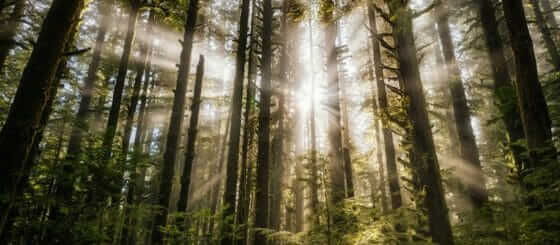 Over 40 trees came down on Chinook roads, trails, and some facilities in the significant windstorm on November 17! There was no substantial damage to our major structures, but the cleanup and repair work has been a big, ongoing job. Thomas, our resident caretaker, did a great job guiding everyone to the safest parts of our campus during the 60 mph gusts.
Over 40 trees came down on Chinook roads, trails, and some facilities in the significant windstorm on November 17! There was no substantial damage to our major structures, but the cleanup and repair work has been a big, ongoing job. Thomas, our resident caretaker, did a great job guiding everyone to the safest parts of our campus during the 60 mph gusts.
We had an incredible group of guests lodging with us who, along with staff, made the best of a long week without electricity. We are so thankful for the spirit of patience, grace, and fun that they brought to the wild adventure. We are also grateful to Robert Keeney for his endurance and skill in helping the land care team with the huge job of making our roads and trails safe again; to staff members Robert, Beno, Karl, and Thomas for their clean-up and repair work at all hours of the day and night; to the volunteers who came out several days after the windstorm to help with cleanup in our Heartland; and to Chef Christyn and her husband George for keeping warm, delicious food on the table all week.
“It was epic,” said Robin Jones, an eight year old daughter of a staff member who sheltered at the Institute overnight with her mom and sister. “We ate a great dinner, because the cook was stranded too!”
Subsequent winter storms brought down many more trees and unprecedented amounts of debris—the clean-up effort continues into 2016.
“Work is love made visible.” —Kahlil Ghibran
The passion and talent of those who serve the Whidbey Institute’s staff and board make all that we do more impactful and more meaningful. We are grateful to each team member who has chosen to bring their whole self to to the work we love and share.
Welcoming New Staff Members
Jessica Reed has been a member of our housekeeping staff since 2015. She grew up on Whidbey, and is a mother of four boys. Her family also includes two dogs, three cats, two turtles, and a guinea pig. She enjoys camping and loves the outdoors.
Jessica Bourgeois enjoys making spaces beautiful and comfortable for our guests. In her spare time, she enjoys arts and crafts: sewing, painting, and baking. When baking, she emphasizes beauty and artistry! She is currently busy making decor for her upcoming wedding. Jessica also loves gardening, spending time with family, and enjoying her dog and birds. She also enjoys staying active, and works out and hikes when she can. Originally from Louisiana, she has lived on South Whidbey for about five years.
Amber Herman works in our housekeeping department, helping to care for our spaces and ensure comfortable stays for all of our Whidbey Institute guests. She’s a dedicated mother of four, and enjoys time with her family, knitting, and jewelry-making.
Karl Gergel made the continental jump from the East to the West Coast at the beginning of 2015, bringing with him a range of professional experience within the spectrum of the food system, from growing and selling produce on farms to sourcing and cooking in restaurant kitchens. His interest in and commitment to responsibly-sourced food and a plant-focused diet has landed him comfortably in our kitchen, which he balances with work on our trails and buildings. He takes delight in helping to maintain the beauty and integrity of the Whidbey Institute’s land and structures.
Congratulating Clayton and Lynne
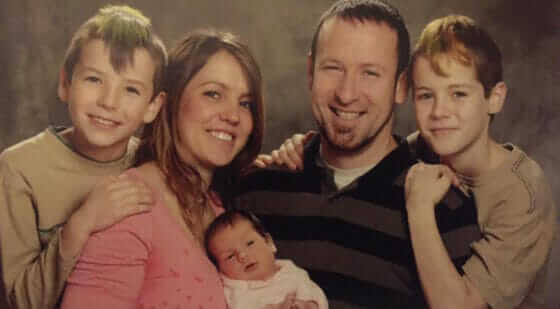 We were happy to welcome Laila Grace Carlson to the Institute family in November. She joins her mom, our housekeeping manager Lynne, her father, former Institute Facilities Manager Clayton, and her two big brothers.
We were happy to welcome Laila Grace Carlson to the Institute family in November. She joins her mom, our housekeeping manager Lynne, her father, former Institute Facilities Manager Clayton, and her two big brothers.
The Carlson family has been involved with the Whidbey Institute for many years, and we are overjoyed to have Lynne back at work. We especially appreciate when baby Laila visits too!
Congratulations Lynne and Clayton on the birth of your beautiful baby girl.
Thanking Margaret, 2015 Community Garden Apprentice
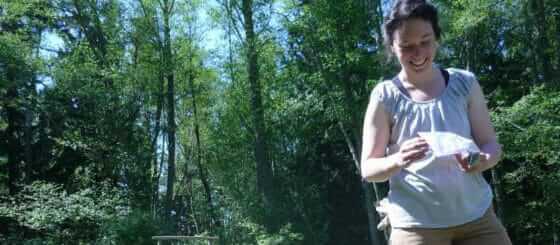 Margaret Pickoff joined our team in mid-March as one of three apprentices joining our community for spring and summer 2015. She spent the growing season here on the Chinook land, living in Mushroom cabin, learning under the guidance of Cary Peterson and Abigail Lazarowski, and helping with garden tending and community engagement work. With her fellow apprentices, Halley and Anh, Margaret served in several local gardens—ours, as well as those at Good Cheer and South Whidbey School District. She had a special focus on Westgarden stewardship.
Margaret Pickoff joined our team in mid-March as one of three apprentices joining our community for spring and summer 2015. She spent the growing season here on the Chinook land, living in Mushroom cabin, learning under the guidance of Cary Peterson and Abigail Lazarowski, and helping with garden tending and community engagement work. With her fellow apprentices, Halley and Anh, Margaret served in several local gardens—ours, as well as those at Good Cheer and South Whidbey School District. She had a special focus on Westgarden stewardship.
While falling in love with Maine’s natural features as a Geology student at Bates College in Lewiston, Margaret also developed skills in farming and gardening each summer between 2009 and the present. “My first position was on a farm in New Jersey after my senior year,” she said. “Every summer since then, I’ve participated in some kind of farming activity, whether as an employee, an intern, or a regular volunteer.” We are grateful to Margaret not only for her gifts of skill and energy to our local food system, but also for her musicianship. As a fiddle player, she enriched our community with beautiful music during her stay with us.
Welcoming New Board Members
We were pleased to welcome the following individuals to our Whidbey Institute Board of Directors in 2015.
Linda Henderson has held key roles including Executive Director, American Diabetes Association (WA & Northern ID); Vice President, American Cancer Society; and Sr. Director of Client Relations, Committee for Children.
Michael Maine works to develop strategic marketing strategy for socially conscientious initiatives. He aims to merge business analysis with social objectives to make a positive impact on communities.
Dale Schweppe, Business Development Director at Technocel and Marketing Consultant to Nature Being Art, brings experience in strategic visioning, brand positioning, and relationship building.
Jill Sheldon, coach and leadership trainer at Open Road Coaching & Consulting, brings over 20 years of experience in supporting and guiding social change leaders to develop greater impact.
Phyllis Shulman, a consultant focusing on community resilience and organizational renewal, brings experience in project design and implementation, governmental relations, collaborative approaches, facilitation, and conflict resolution.
TEDxTalk with Michael B. Maine
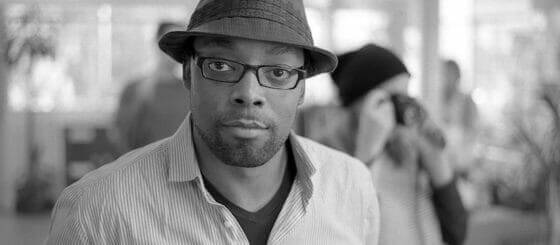 Whidbey Institute board member Michael B. Maine was a TEDx speaker in Olympia this year. “Michael’s work is intended to bring people together who might not normally share intimate time and space. His goal is to both illuminate the things we have in common and celebrate our differences while exploring issues of identity, belonging, isolation, deviance, kindness, and oppression. The medium he uses most is photography supplemented with interviews, community events, and transmedia storytelling, distribution, and collaboration. He describes himself as someone who newly identifies with being an artist. Although his path has taken several turns to find his passions, his set of experiences have positioned him to be able to serve as a bridge between several different communities. This informs much of his inspiration and the approaches he takes with his work.”
Whidbey Institute board member Michael B. Maine was a TEDx speaker in Olympia this year. “Michael’s work is intended to bring people together who might not normally share intimate time and space. His goal is to both illuminate the things we have in common and celebrate our differences while exploring issues of identity, belonging, isolation, deviance, kindness, and oppression. The medium he uses most is photography supplemented with interviews, community events, and transmedia storytelling, distribution, and collaboration. He describes himself as someone who newly identifies with being an artist. Although his path has taken several turns to find his passions, his set of experiences have positioned him to be able to serve as a bridge between several different communities. This informs much of his inspiration and the approaches he takes with his work.”
Fond Farewells
Dale Schweppe stepped on AND off our Whidbey Institute Board in 2015, departing due to a relocation with his husband Jamie from Washington State to California. Although we were sorry to see him go, we were grateful to have received a tremendous amount of energy and expertise from him during his short term of service, including leadership of a collaborative process to explore and express our organizational mission and vision.
Linda Henderson requested a leave of absence late in the year due to family matters, and we look forward to welcoming her return to board service when she is able.
Bill Koenig joined the executive team in October 2014, and was formally introduced on January 1 as co-director alongside Heather Johnson. In his role as our designated champion of self-management principles, Bill helped evaluate and implement our systems of self-management; established methods for improving intra-organizational transparency; supported staff in defining clearer roles and accountabilities; and facilitated the learning of new, more efficient and empowering processes for meetings and decision-making. In June, Bill chose to step down as co-director.
As a staff and board team, we wish to express our gratitude to Bill and his wife Carole for their support of the Whidbey Institute. We thank Bill for his recent service, as well as for his long history with the Institute as board member, board chair, advisory council member, and governance task force member.
“Those who bring sunshine to the lives of others cannot keep it from themselves.” —James Matthew Barrie
The gifts of time, expertise, energy, money, and wisdom shared with us each year by our incredible community are immeasurable, and no expression of gratitude is enough. We are blessed to be held so well, and your care uplifts all that we do.
You GaveBIG!
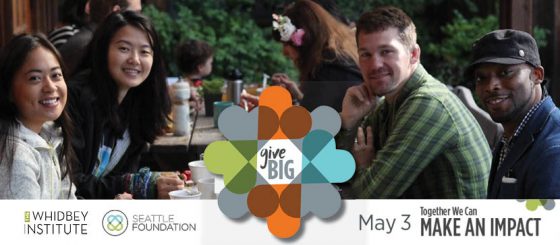 We are so grateful to all who supported the Whidbey Institute’s work in May 2015 through Seattle Foundation’s GiveBIG. This one day philanthropic event engages tens of thousands of donors and benefits
We are so grateful to all who supported the Whidbey Institute’s work in May 2015 through Seattle Foundation’s GiveBIG. This one day philanthropic event engages tens of thousands of donors and benefits
Together, 170+ donors—including our own staff and board members—gave $70,300 to support our community of leaders, the Chinook land, and programs to advance social and environmental justice for the common good.
The next opportunity to GiveBIG is right around the corner, on Tuesday, May 3, 2016!
Rising Leaders Scholarship Program Touches Lives through Bioneers Conference
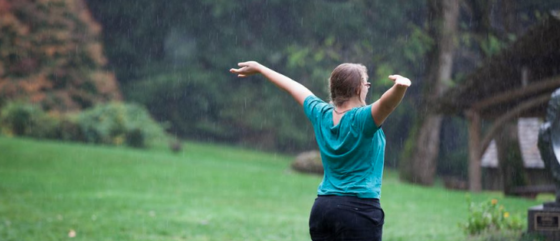 The Whidbey Institute awarded 49 scholarships to Salish Sea Bioneers participants in 2015, with a total value of $7,898 and an average award of $161 per recipient. Nearly half of all conference participants received a scholarship award of 50%, 75%, or 100% off tuition!
The Whidbey Institute awarded 49 scholarships to Salish Sea Bioneers participants in 2015, with a total value of $7,898 and an average award of $161 per recipient. Nearly half of all conference participants received a scholarship award of 50%, 75%, or 100% off tuition!
This scholarship support enabled dozens of emerging leaders, like Sossina (pictured), to participate in Whidbey Institute programming. These are people who wouldn’t otherwise have had the chance to join us!
Big thanks to everyone who contributes to our scholarship fund. Your generosity helps rising leaders find a home here at the Whidbey Institute.
Our Volunteers
 We had an incredible amount of volunteer help last year, especially in our Westgarden and on our trails. In the garden, we averaged 15 hours of volunteer help each week. The season total was close to 400 hours. Not only did we have all that help growing and harvesting produce for the food bank, tending to our medicinal herbs, and caring for the chickens, we also had an incredibly fun and meaningful growing season together. Some tight and lasting friendships were formed among the beds of kale and flowers.
We had an incredible amount of volunteer help last year, especially in our Westgarden and on our trails. In the garden, we averaged 15 hours of volunteer help each week. The season total was close to 400 hours. Not only did we have all that help growing and harvesting produce for the food bank, tending to our medicinal herbs, and caring for the chickens, we also had an incredibly fun and meaningful growing season together. Some tight and lasting friendships were formed among the beds of kale and flowers.
We have had substantial support from staff and volunteers to maintain and improve our trails, including tread work and pruning. We are particularly grateful for the time and effort of volunteers Gordon Dowd, Hannah Dowd, and Kathleen Wills as well as Terry Bourk, Christopher Diggins, and so many others! Timothy Hull extends a special thank you to all the volunteers who helped out near Storyhouse in 2015.
We also thank development intern Amanda Mead for her donation of time and skill during her semester-long internship.
Volunteer Profile: Thanking Bob Keeney
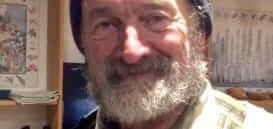 Robert Keeney is an indispensable member of the Whidbey Institute volunteer team, and frequently comes to the land for a day or a week at a time to build trails, remove hazard trees, clear windfall, and support our land care team with his labor, skill, and wisdom. He’s been coming to Chinook since 2010, and his volunteer hours this year alone add up to about three weeks of full-time service.
Robert Keeney is an indispensable member of the Whidbey Institute volunteer team, and frequently comes to the land for a day or a week at a time to build trails, remove hazard trees, clear windfall, and support our land care team with his labor, skill, and wisdom. He’s been coming to Chinook since 2010, and his volunteer hours this year alone add up to about three weeks of full-time service.
Bob helps at the Whidbey Institute with tasks ranging from plumbing to forestry, but he really shines in stewarding our 100 acres of wooded trails. “He always finds a simpler way to do something,” Land Steward Robert Mellinger said, “and he draws from decades of experience.” Recently, for instance, Bob pulled two trees off roofs using complex rigging and knots he may have learned during a stint as a tugboat deckhand.
“He pays a lot of attention to people’s experiences,” Mellinger went on. “In doing tread work and regrading trails, for instance, he’s thinking of the kinds of people who might use them. Can an elderly person use the trail? A mother with children?”
Staff members appreciate Bob Keeney’s technical skills—his lifetime of experience and his mechanical aptitude—as well as his perception, his powers of observation, and sensitivity for the health of trees and humans alike. “He’s brilliant at making subtle changes that have a big impact,” said Thomas Arthur, Resident Caretaker. “A lot of the stuff he does is very important but almost invisible.”
Visit our blog to read Bob’s reflections on topics ranging from intercultural friendships and childhood road trips to wildfires and the unknowable future.
“The true meaning of life is to plant trees under whose shade you do not expect to sit.” —Nelson Henderson
Remembering those we have loved and lost.
Remembering Gloria Chou
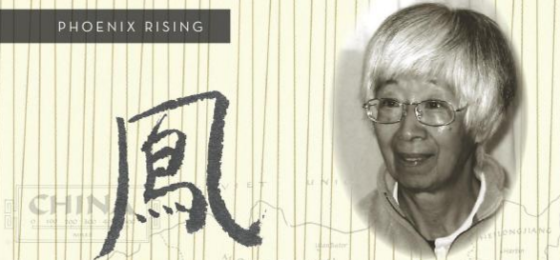 2015 took with it a dear soul—Gloria (Fung Chee) Chou. She was a committed volunteer at Chinook for many of her elder years. She lived simply throughout her life, valuing home, community, and service. We were honored to learn, upon Gloria’s passing, that she had designated the Whidbey Institute as a beneficiary of her life insurance policy—ensuring that the place she loved will continue to touch lives, as it touched hers, in the years stretching ahead.
2015 took with it a dear soul—Gloria (Fung Chee) Chou. She was a committed volunteer at Chinook for many of her elder years. She lived simply throughout her life, valuing home, community, and service. We were honored to learn, upon Gloria’s passing, that she had designated the Whidbey Institute as a beneficiary of her life insurance policy—ensuring that the place she loved will continue to touch lives, as it touched hers, in the years stretching ahead.
Gloria’s memoir, written and published during her years on Whidbey Island, describes a life of generosity, equanimity, and grace.
“Gloria wanted all to feel welcome,” wrote former Institute Director Dianne Shiner. “She was a caring critic of superficiality and elitism, and wanted it to be easy for people to engage with the Whidbey Institute.”
Gloria’s Chinese name, Chou Fung Chee, means “Phoenix Rising”—it is our hope and prayer that memories of this dear woman will continue to bring inspiration and peace to the hearts and minds of those she’s left behind.
Remembering Wilma O’Nan
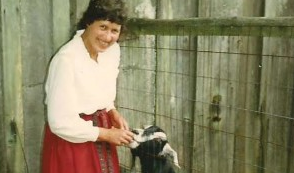 We lost a dear friend and beloved community member when Wilma O’Nan passed away in February at the age of 82.
We lost a dear friend and beloved community member when Wilma O’Nan passed away in February at the age of 82.
Wilma moved from California to Whidbey Island in 1978 to get involved with the Chinook Learning Community—now the Whidbey Institute. Chinook Co-Founder Vivienne Hull remembers Wilma’s arrival with vivid clarity and humor.
“Back at the very beginning, when we didn’t have a clue about what we were doing at all, I got a letter from this woman who wanted to know what she could do to help. I didn’t even know how to answer it, so I didn’t. It was one of the only letters to which I didn’t even write back,” Vivienne said. “Just a few weeks later, this VW bug drove down the road. It was Wilma. She said, ‘you didn’t answer when I wrote, so I figured you needed secretarial help.’” Wilma worked for Chinook as an employee in varied capacities, including secretarial, for the next six years.
Her daughter planted a katsura tree at Chinook in memory of Wilma and Clover the goat.
Read more about Wilma on our blog.
Remembering Roger Harrison
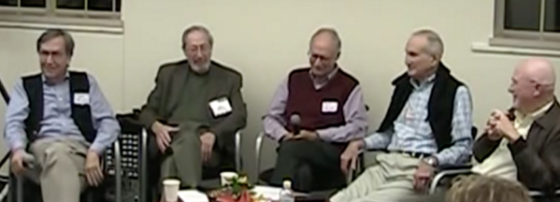 Roger Harrison (center) was an organizational development leader and a dear member of the Whidbey Institute community. He passed away in 2015. Roger, with his wife Margaret Harris, provided us with a model of partnership. In brief encounters with them separately and together, we observed and learned how their love for each other was grounded in fierceness and vulnerability. Roger’s death was followed by the passing of his beloved wife Margaret this January. Their beloved memories remain in our hearts.
Roger Harrison (center) was an organizational development leader and a dear member of the Whidbey Institute community. He passed away in 2015. Roger, with his wife Margaret Harris, provided us with a model of partnership. In brief encounters with them separately and together, we observed and learned how their love for each other was grounded in fierceness and vulnerability. Roger’s death was followed by the passing of his beloved wife Margaret this January. Their beloved memories remain in our hearts.
Your Legacy and the Institute
 Remembering the Whidbey Institute with a bequest from your estate will help sustain and strengthen our mission in years to come. A gift from your estate, either a transfer of cash, securities, or other property made through your estate plans, carries specific benefits now and lives as a lasting testament to the deep commitments we are honored to have within our community.
Remembering the Whidbey Institute with a bequest from your estate will help sustain and strengthen our mission in years to come. A gift from your estate, either a transfer of cash, securities, or other property made through your estate plans, carries specific benefits now and lives as a lasting testament to the deep commitments we are honored to have within our community.
You can make a bequest to the Whidbey Institute by including language in your will or living trust leaving a portion of your estate, or by designating the Whidbey Institute as a beneficiary of your retirement account or life insurance policy.
Some of the advantages of creating a bequest include:
- A bequest costs nothing now, yet gives you the satisfaction of knowing you have provided for the Whidbey Institute in the future
- You retain control of and use of your assets during your lifetime
- You may modify your bequest if your circumstances change
- Gifts to the Whidbey Institute from your estate are exempt from federal estate taxes
- If you let the Whidbey Institute know of your plans, we will be able to thank you now and recognize you as a member of our Nurse Log circle of donors.
For more information about establishing your bequest gift to the Whidbey Institute, or to let us know of your planned gift, please contact Jenna Barrett, Development Manager: [email protected] or 360.341.3442.
2015 Income and Expense Data

